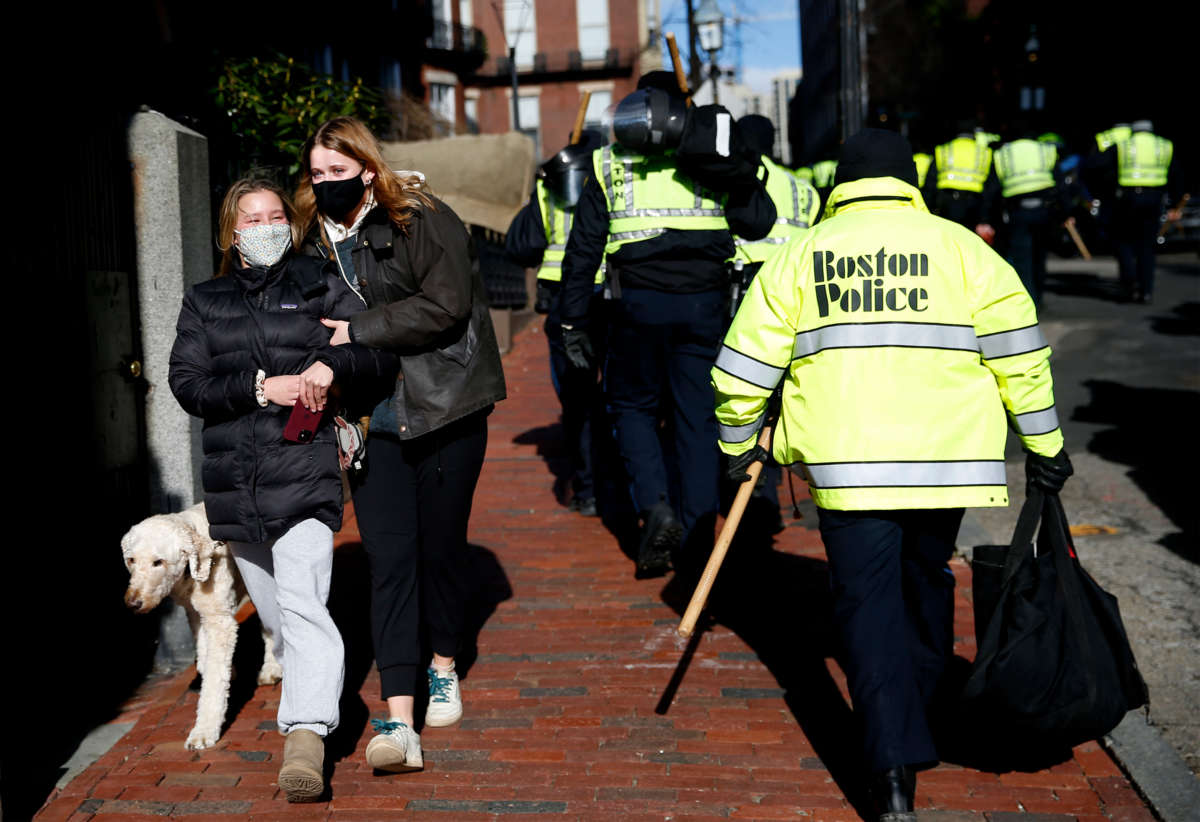The Boston Police Department for decades allegedly hid charges of child molestation against Patrick Rose Sr., a former patrolman and former head of the police union, The Boston Globe reports.
The former officer reportedly faces 33 charges of sexual abuse of six minors aged 7 to 16, and he was arrested and charged last summer when the city learned of the allegations. But the Boston Police apparently had known about the child molestation charges against Rose since 1995, when it filed a criminal complaint against him for the sexual assault of a 12-year-old boy.
The police department ultimately dropped that criminal complaint against Rose but the internal investigation that followed, however, found that he did commit the crime, the Globe reports.
Despite the fact that the department has had this information for 25 years, Rose was allowed to continue serving as an officer for another 21 years and allowed to rise through the ranks to become the head of the police union that represents the city’s 1,500 police officers. As union president, he led the charge against requiring officers to wear body cameras.
The department continued sending him out to respond to calls that involved interacting with children. In 2006, he was even called to testify as the arresting officer in a child sexual assault case.
Meanwhile, the department allowed Rose to continue unpunished for so long that the girl who came forward with the abuse allegations last summer is the daughter of the man he allegedly assaulted in the 1995 case.
This reported cover-up, the Globe reports, is just one in a series of cover-ups that the Boston Police Department has conducted over the years. The Globe last year found dozens of cases brought against police officers in past years for offenses ranging from domestic violence to car crashes caused by drunk driving, where the officers either did not face any consequences for the charges or were quietly asked to leave the force with no further consequences.
The new allegations, then, are nothing unusual. “Culturally, the police organization exists to avoid scrutiny from what the police see as interlopers, people from the outside who don’t understand their world,” Tom Nolan, a former Boston police lieutenant and current sociology professor at Emmanuel College, told WBUR.
The acting Boston Mayor Kim Janey said in a statement that the case was “incredibly disturbing.” “It is appalling that there was a documented history of alleged child sexual abuse, yet this individual was able to serve out his career as an officer and eventually become the head of the patrolmen’s union for several years,” Janey said.
The problem of police covering up their colleague’s crimes is not unique to Boston; quite the opposite. Referred to as the “Blue Wall of Silence,” such cover-ups are incredibly widespread across the U.S. and have been for decades.
The mindset is so pervasive that in Maryland (and 13 other states), the police have their own “Law Enforcement Officers’ Bill of Rights” that allows officers to remain mum for 10 days on any incidents implicating fellow police officers. This special Bill of Rights is what helped police officers interfere with the case of Freddie Gray, who Baltimore police officers arrested and gruesomely injured to the point of death in 2015.
Media that fights fascism
Truthout is funded almost entirely by readers — that’s why we can speak truth to power and cut against the mainstream narrative. But independent journalists at Truthout face mounting political repression under Trump.
We rely on your support to survive McCarthyist censorship. Please make a tax-deductible one-time or monthly donation.
